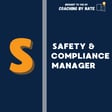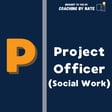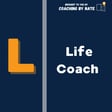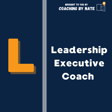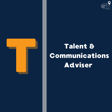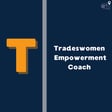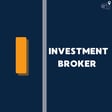Become a Creator today!Start creating today - Share your story with the world!
Start for free
00:00:00
00:00:01

Meet Jason an International Growth Leader
If you're looking for a dose of inspiration and practical wisdom to ignite your business journey, you're in the right place. Our guest this week is Jason, an international business growth leader who has made a remarkable impact across the globe. Jason is not just an expert in business, he's a master of customer service, a published author and a sought-after keynote speaker. Whether you're starting out or looking to take your business to the next level, Jason's story and insights are sure to empower you.
www.thecareerchangecoaches.com
Transcript
What's A to Z Jobs about?
00:00:05
Speaker
Welcome to A to Z Jobs, the podcast that delves into the fascinating world of careers one profession at a time. In each episode, we'll deep dive into a specific profession, exploring its history, requirements, challenges, and rewards. So get ready to expand your horizons, challenge your perceptions, and discover a world of possibilities. I'm Roxy. And I'm Nate. And we're excited to host you on this journey.
00:00:28
Speaker
If you're looking for a dose of inspiration and practical wisdom to ignite your business journey, you're in the right place.
Meet Jason: Business Growth Leader
00:00:35
Speaker
Our guest this week is Jason, an international business growth leader who has made a remarkable impact across the globe. Jason is not just an expert in business. He's a master of customer service, a published author, and a sought after keynote speaker. Whether you're starting out or looking to take your business to the next level, Jason's story and insights are sure to empower you.
00:00:56
Speaker
Hi Jason, welcome to our podcast. Hey Roxy and Nate, thanks so much for having me. Brilliant. Well, let's dive straight in and ask you what you do for a living.
00:01:07
Speaker
So I'll wear a few hats. Ultimately, I'm an author, a keynote speaker, an investor and a small business owner. In fact, I started my first business at just 14 years of age. So although as I'm sure we'll come out in this podcast, I've worked for some of Australia's biggest brands and some of the world's biggest brands. I've always been an entrepreneur at heart. That's brilliant. A real Richard Branson. Well, I wish I had his bank account. That's for sure. What was the business of 14?
Early Entrepreneurial Ventures
00:01:36
Speaker
So at 14 I was selling telecommunication products and computer equipment, office supplies, software.
00:01:46
Speaker
Most of my clients were actually other businesses, but I did also sell direct to consumer as well. And when I say I was selling telecommunication products, think of the old office PABX system where you had that big cumbersome handset on your desk and some of the very first mobile phones. In fact, there's a really awful photo of me riding a bicycle, which at 14, that's all I was allowed to do, using a mobile phone that had an antenna you had to pull out and
00:02:13
Speaker
all sorts of magic, magical things that we don't have to deal with these days. I think we're going to have to get that photos. We'll see how good your Google skills are then.
Balancing Multiple Roles
00:02:28
Speaker
So with so many hats, what does an average day look like for you? How do you, how do you balance all that? Well, the average day isn't really average in a sense that
00:02:39
Speaker
almost everyday by design is different. Having said that, just like everyone else that has a job, whether it's a
00:02:48
Speaker
employed with a company or for yourself, the tasks don't necessarily change. What's different day to day is what I'm working on. So, you know, later today I'm coaching an owner of a recruitment agency here in Australia. And we'll discuss all sorts of things that will be completely different to the call that I have after this podcast recording, right? And after this podcast recording, I've got a call with a bank around some of their products. So every single day has the same elements, emails, phone calls,
00:03:18
Speaker
getting on stages occasionally speaking to audiences, but the content is what changes out sometimes quite dramatically day-to-day. And then the other part of it, which is probably a little bit against popular thinking, I don't particularly prescribe to this whole work-life balance concept where you've got to have eight hours of work, eight hours of play, and eight hours of sleep. For me, it's about blending your life and doing what
00:03:47
Speaker
you really enjoy and so if i'm watching something on tv at night i'll usually have my laptop in front of me and i'll be you know casually reading something or doing emails and for some people that just spells disaster no no balance whatsoever but if i was just sitting there watching tv i'd be bought out of my brain so it really is about just having
Work-Life Integration Philosophy
00:04:10
Speaker
an awareness of what keeps you excited and motivated. Now, don't get me wrong, there's definitely times where I switch off and go and do things like travel and whatnot. But for me, it's about just doing what motivates you in the moment and keeps you striving for that next goal.
00:04:30
Speaker
It's quite funny. I always sort of turn the TV on when I'm working just as I'm actually cheating, but I'm actually working at the same time. You know, I can watch that little drama in the background and the noise kind of keeps me going, but it's that balance, right? So for you, you're like, you're chilling out. But for me, it's like, Oh, actually, I might just cheat a little bit. So talk me through your various hats.
00:05:00
Speaker
What are the responsibilities for each one of
Consulting Business Leaders
00:05:02
Speaker
those? Yeah, so as a consultant, I'm a trusted advisor to individuals around their challenges in their business. Some of my clients share some of their deepest, darkest
00:05:15
Speaker
secrets, if you like. And when I say secrets, it's those things that they can't share with their own team members because they don't want to feel, they feel looking like they don't know what they're doing. Or even worse still, they actually don't know what they're doing. And they're fearful of actually asking for help. So as a consultant, you get exposed, certainly in my world, at least get exposed to a lot of those
00:05:40
Speaker
inner thinking of leaders in businesses that actually are just like you and I, where they don't have all the answers, but society has certainly put on them. The more senior you get, the more you're meant to know, right? You're the CEO, you should be able to solve every
Advising Tech Startups
00:05:55
Speaker
problem.
00:05:55
Speaker
the fact is the ceo isn't designed to solve every problem otherwise they wouldn't need any team members so as a consultant i deal with all sorts of things so my client this afternoon that i'm catching up with for example we're talking about building a completely new business for for her to help her
00:06:18
Speaker
Decentralize the way that she operates really and have additional income streams Then as a board advisor when I'm sitting on the board of companies advising them then it's usually startups usually tech startups in their early stages one to one to five years before they've floated on the stock exchange and a lot of that's about steering them about and
00:06:43
Speaker
what's the shiny object they should be chasing as opposed to the shiny object they want to chase. And the problem with a lot of startups is not that they don't have a lot of great ideas, so they don't know which great idea to focus on. So as a board advisor, a lot of the work is around just putting on some guardrails, if you like. This is the path to go town. This is why. And ask the difficult questions, sometimes be that mirror saying, you know, is this the right thing for your business right now?
00:07:13
Speaker
It's not necessarily having all the answers a lot of time as an advisor.
00:07:17
Speaker
about helping the person discover the answer that's right for them in the moment.
Keynote Speaking Focus
00:07:21
Speaker
As a keynote speaker, well, it's paid for talking, really, getting up and talking about what I've been passionate about my entire life, which is customer experience, employee experience. I've written a book on the topic, and that's about motivating the audience to start moving in the right direction when it comes to those topics. How can they improve their business? How can they accelerate their growth?
00:07:44
Speaker
by focusing on the experiences that they deliver. And then, you know, it's pretty much a blend of all of those things, you know, doing podcast interviews. It's about communicating effectively and helping people move forward. And that's ultimately my goal, whether it's as a consultant, a keynote speaker, or even as an author, to help people take that next step towards achieving their success.
00:08:10
Speaker
That was brilliant. It just had this image of you lining up all my shiny ideas. All the shiny things, you know, do this one first and stuff, put all the rest of it in a box. It's almost the hardest part of consulting with someone though, because you can sit in front of me, I can say shiny object A over all the others, and you can agree with everything I say. But as soon as I hop off that call with you,
00:08:39
Speaker
there's a lot of individuals that will still go and say, well, I can still look at Shiny Object B and C. No, it's less Shiny Object, so that's OK. Next week or next month when we get back together, we repeat some of that work again.
00:08:57
Speaker
I think we totally did that after catching up with you. We're focusing on Shiny Object A, but then all these other ideas keep shooting off and it's the two of us at the moment who are like, no, no, not right now. Concentrate on Shiny Object A. The guardrails are definitely up. It raises an interesting point. You know, I talk a lot about consulting, but
00:09:22
Speaker
One of the reasons why I've always personally had a mentor and encourage people that work for me to have a mentor is that it is an easier way, certainly more cost-effective way in most cases, to get regular feedback about what it is that you're working on and to stay on track because I think it is easy for us when we start not enjoying some of that hard work that everything has hard work at some point in it that we go, oh, well, maybe I'll just go and dabble in something else.
00:09:51
Speaker
The reality is the Richard Branson's, the Jeff Bezos, the Tim Cooks of the world, they haven't become who they are without getting some help.
Mentorship's Role in Career Growth
00:10:01
Speaker
from others, whether that's a mentor or a consultant or a coach, whatever you want to call them, they've always had regular input from people that they know, like, and trust enough to be able to open the curtains and share the good and the bad. And so whether it's in a consulting engagement that someone takes up with or a mentorship, it's the repetitiveness. It's that constant regular feedback that helps keep, like I said, the guard rails up or to keep the focus where it needs to be.
00:10:31
Speaker
Otherwise, it just becomes a conversation that, quite frankly, we could probably both enjoy getting the time back in our diaries. Yeah, I think it's the same with us in career coaching because no one really helps. They don't ask for help in their careers. You know, it feels like it's a completely lone journey where you're struggling, you're fighting, you're talking about salaries, you're working out which way to pivot, you're working out if you need to change your careers completely.
00:10:56
Speaker
But having someone to sort of talk that through, give you the right ideas, teach you how to negotiate, but also teach you how to develop in a career that might have a glass ceiling, you know, because there are options and ideas that they haven't even thought about yet or ways to sort of
00:11:13
Speaker
talk to their managers about ideas that they think that would never happen. And, you know, talking to a couple of our guests before, they've had managers who don't want them to move forward as much, but when they pushed and they pushed their ideas forward, their lives became so much better. So it's nice having that little connection. It's awesome. I also think that's one of the reasons important to have a mentor that isn't your manager, because especially if it's with inside a larger organization, because
00:11:42
Speaker
then your mentor in many cases can become your advocate, your champion as well. And it is difficult, you know, to have a conversation with someone more senior than you to say, well, at some point I want your job because ultimately that's what you're saying. And human nature says, you know, protect yourself. So I think it's important to have a mentor and where possible for it not to be the person that, you know, figuratively signs your paycheck week to week.
00:12:07
Speaker
Nate here, just getting a quick plug for our mentoring program. As you can hear in this podcast, getting a mentor is such a key aspect of changing careers or growing your career. So with our program, you'll be matched with an experienced mentor from your field or your target field with packages starting from just three sessions. You'll gain insights, guidance, and support that you need to achieve your career goals. So don't miss out. Jump on our website, thecareerchangecoaches.com and we'll start your journey today.
Career Evolution: Entrepreneur to Director
00:12:37
Speaker
So talk me through your career journey. How did you get started in all of this? Well as I said I started my first business at 14 years of age so a little bit different journey to others and that didn't come out of a place of wanting to become the next Richard Branson or anything like that. It ultimately just came from a
00:12:59
Speaker
really simple perspective was that I had really expensive hobbies at 14. I wanted to buy every shiny object, every new computer, every piece of tech there was. And my parents, while they were very supportive of me, they certainly weren't in a position to buy me a new $3,000 computer every week or
00:13:17
Speaker
know whatever the toy might have been so it was a necessity to find a way to generate the income and doing the paper run wasn't going to do it but you know that was 14 years of age by the time I was in university 17 18 years of age I was bored of it like it had been my
00:13:39
Speaker
my childhood or my teenage years trying to hustle and it just wasn't giving me what I wanted. I wanted to be a typical first year uni student where perhaps classes wasn't the thing that I was most focused on.
00:13:55
Speaker
And certainly work wasn't either. So I exited that business, sold that business, and then spent six months in university and said, well, I'm not making any money in this venture. That doesn't make any sense either. So I then went and worked for someone.
00:14:15
Speaker
I've really continued, although I started working for someone doing outbound telemarketing, selling carpet cleaning and pest control services. Now, if you ring someone at six o'clock when they're sitting down for dinner and you're trying to sell them some carpet cleaning, you learn very quickly the art of selling and the art of objection handling.
00:14:33
Speaker
And I did that for about a year, and then the company I was working for went bankrupt. So the answer was, I'll just start one myself. So my second business was a carpet cleaning and pest control business. Employed most of the people that I used to consider peers and got going. And then that really wasn't driving me. Quite often, whether it's your own business or a career you find,
00:15:02
Speaker
I've chosen the wrong path. It's not right for me. So exited that business as well and sort of fell into a role as an assistant call center manager and it was on a project.
00:15:17
Speaker
It seemed easy. It suited my lifestyle at the time. My shift was from 2 p.m. to 10 p.m. So I could go out afterwards and rinse and repeat each day. And then from there I moved on to Telstra. Telstra really was the first big corporate company that I had worked for.
00:15:39
Speaker
what my career path in Telstra was really driven by a couple of things. First and foremost, it was driven by an unwavering commitment to getting it done, getting whatever the task in front of me done, but not just done, but done to the highest standards and with the customer in mind. And so while I was at Telstra, I transferred from their wholesale division into a special team that was set up purely to manage the most difficult customers that they had. And I got to work on some really
00:16:10
Speaker
Sounds awful saying it, but some really fantastic initiatives. So when the Bali bombings happened all those years ago, it was actually myself and my team that managed the Telstra response to that, where they did some phenomenal things to support people that were impacted by the Bali bombings.
00:16:26
Speaker
and to think that a telecommunications company would have a call center doing booking hotel rooms and flights for individuals that were impacted is just phenomenal. Now at the time it was still predominantly government owned so I doubt they would be in a position to justify that sort of work these days to their shareholders but nonetheless it was still a great experience and the reason why I got to work on things like that and other unique projects is because of that focus on customer experience and
00:16:53
Speaker
When I was 14, I was saying that the difference between me and everyone else is that I compete on customer experience, not on price, and that really became my mantra throughout my career.
00:17:05
Speaker
From Telstra, I moved over to Optus, no big switch there except for the first six months I had to learn to say which network was the better one. And through all of this, throughout all my career, in fact, like I've mentioned earlier, I've had a mentor outside of my direct line management and been extremely open with the fact that I didn't want to stay in my current place. So I didn't want to be a team leader. I didn't want to be a call center manager. I wanted to be more. And so
00:17:32
Speaker
By being open to that meant that I also got a lot and lot of feedback around what was stopping me get there and what I needed to change. Then importantly, I acted on that change. In total, I spent about 10 years in telco and loved it because I had a new gadget every month to play with being the peak of when mobile phones were coming out every few weeks.
00:18:00
Speaker
Then I left telco and jumped into government and I managed the government telecommunications agreements for a period of time and That was a very insightful period I went from being a senior procurement manager to director within the New South Wales government responsible for putting the people of New South Wales back into procurement and that sounds really really quite
00:18:27
Speaker
Well, I won't say the words of the podcast, but the reality was that they wanted to become more customer centric and who is their customers, but the people of New South
Customer-Centric Government Roles
00:18:36
Speaker
Wales. And a really practical way to explain that is in procurement, the main goal usually is to get the product at the lowest possible price. That's what most people think a procurement job is. But if you're buying a bed for a hospital and all you're thinking about is price,
00:18:53
Speaker
The patient experience is likely to be terrible because that bed is unlikely to be very good, right? But when you start to place into your decision making criteria that someone should be able to lay on the bed for, say, 14 days without developing a bed sore, all of a sudden the price becomes secondary.
00:19:12
Speaker
or tertiary consideration before the primary one. Now, you might think, well, you know, it's government money, it should always be the cheapest. Well, if you've got a patient that's developing bedsores or other problems as a result of the facilities you're providing,
00:19:26
Speaker
you're actually ending up spending more money on patient care than if you just bought the better product in the first place. So that was an interesting time in my life because one thing that it did teach me a lot is I hate bureaucracy. So here I am as the director of procurement transformation, trying to make it better for everyone, people of New South Wales and the public servants, but absolutely learning a lot about myself at the same time, which was I hate bureaucracy.
00:19:55
Speaker
That's why at some organizations afterwards, I was probably called the bureaucracy buster because you just get rid of that red tape, red tape does.
00:20:03
Speaker
Red tape has its place, but if they've got too much of it, it's going to slow you down. And so after that, I went back into the corporate world, I was done and dusted with government bureaucracy, and then went back into the corporate world. And ended up, my last big corporate job was at Volkswagen Group Australia as chief customer and officer and chief marketing officer, which was a phenomenal role.
00:20:29
Speaker
that got to do a lot of exciting projects and hopefully make a difference to the lives of the team members and the customers that purchased their products. But through all of that, the one thing that has been consistent through all of that is how can we improve the experience that we're delivering to our customers and to our team members so that we can deliver a better result.
00:20:49
Speaker
Yeah, definitely. I am one of those, I hate bureaucracy. I hate when you can't do something just because of something, something, something, you know, like it's like, it's a very clear line. I think I'm the one that's always screaming and shouting in those meetings, but shouldn't be. And there is something about bureaucracy that we need to understand. Sometimes you might find a way to win against the bureaucracy, but unless you've changed the bureaucracy,
00:21:18
Speaker
That win is short-lived because the next time you need to go and do that same thing, you're going to have the same challenges. And if you found a loophole, generally, bureaucracies are good at closing loopholes, right? So what I say is you shouldn't be fighting against the bureaucracy. You should be working to improve the bureaucracy because
00:21:38
Speaker
Absolutely. You need checks and balances in every organization, whether it's your own business or whether it's a large corporate, but it should be those checks and balances shouldn't slow down the pace of getting stuff done. And if it does, you need to change the culture. You need to work with the bureaucracy to
Navigating Bureaucracy for Change
00:21:55
Speaker
improve it.
00:21:55
Speaker
Definitely culture is a big thing in different jobs that you've got where people have been there for 20, 28 years and they're like, well, no, this is the way it's always been done. It's like, well, the world keeps moving. So it's how to negotiate that, right? Absolutely. Absolutely. You mentioned a couple of times now about the importance of having a mentor and particularly outside of your immediate work bubble. How do you go about finding that person that you're not approaching people through your workplace?
Finding Mentors Beyond Work
00:22:25
Speaker
Yeah, so it can be in your workplace, it just shouldn't be someone that you report to. And ideally, someone that has limited exposure to you, but still is in a field that you're interested in. It's no good, if you've got no interest in engineering, it's no good being mentored by the general manager of engineering, because they'll get to a point where you both aren't getting something out of the relationship.
00:22:52
Speaker
and both people should grow through a mentor or a relationship, in my opinion. So one of the ways that I've found mentors in the past, certainly in the early days in my career, is when I'm attending conferences or industry events, and they're so easy to attend these days with so many of them being online, is I will reach out strategically to one or two of the speakers that I found the most value to where I am at in my career.
00:23:19
Speaker
And not on the first conversation, but start building a conversation with them so I can get to the point where I can say, you know, can you be my mentor? Would you mind hoping to call once an hour, one hour every two months?
00:23:35
Speaker
You know, make the ask small and manageable. I think one of the problems a lot of people have when it comes to mentoring is they walk in and they go, can you be my mentor? And I want to meet with you every week for an hour. And then, you know, I respond with, well, what are we going to do every week for an hour? And they're like, I have no idea. Well, you're not ready for a mentor. So make the ask.
00:23:56
Speaker
measurable but specific. So I'd like you to mentor me on these topics. I'd like to meet once every two months for an hour at a time convenient to you. And if at any point that doesn't work for you, I understand that we might have to end the relationship, but this is what I think I can give you as a result of mentoring me. I have this different experience or
00:24:18
Speaker
I've had this background and that really, when you frame that ask in a way that doesn't seem like it's overwhelming or too much, most people are more than happy to help you out because
00:24:30
Speaker
Like I said, no one has become the CEO of a great big company without someone helping them along their way. I guess it's, do you have any advice for the people who really don't know where to start with that one? Because I'll give you my example. I'm trying to break this Guinness world record in film in a horror movie. And I keep reaching out to horror directors, but because I've never made a feature film myself, I've only ever done TV series and shorts.
00:24:58
Speaker
I don't know what the hell to ask these people or what I'm asking from them. And they are the busiest people in the world. So I reach out to them and go, Hey, would you like to go for a coffee? But then I have this huge panic attack about trying to be specific about what I'm asking for, but I don't understand that world in any way. So I really don't know if the question I'm asking is this massive feat for them or not. Is there anything generic that you can start with that you would give as an advice?
00:25:25
Speaker
Yeah, so I would always encourage people not to reach out and ask for a coffee virtually or otherwise because everyone can do that. It doesn't distinguish you to start with. I would start from a place of getting to understand them before you message them and do one of two things in your messaging. The first could be, I've looked at
00:25:52
Speaker
I've watched 50 of your feature films. This is the one thing that really excited me about it. It's helping motivate me or keep me excited about my project that I'm working on. Would I be able to have 10 minutes of your time to ask you this question?
00:26:13
Speaker
And then be really transparent. I understand that my naivety in this space might mean that it's not a answer that you can give in 10 minutes. But I would appreciate if I could at least have 10 minutes of your time or a reply to the question in this message. And that way, you haven't forced something big and scary. You've made it really clear. You're not going to try and sell them anything. You've made it really clear that you've done your homework.
00:26:40
Speaker
you've given them a way to help you without them even giving you 10 minutes face-to-face type, right? So I think that's really important that you give them something really small and bite-sized that they can get an appreciation that you actually are serious and not just some fan trying to get a selfie with them or something crazy like that. So yeah, make sure you've done your research. Make sure you tell them that you've done your research and then ask them a question that doesn't seem too big that
00:27:10
Speaker
Best case scenario, they reply to the question in your message. Even better scenario is they agree to have jumped on a call. No, that's brilliant. So research and little stepping stone questions that get you through the door. Yeah, and if you can add some value to them, this is a tricky one, but if you can add some value to them or a perspective they may not have heard of before, that can be good too, but I would
00:27:35
Speaker
I would encourage you to be careful in that respect, because if you're completely new to the genre and you come in and say, well, you know, in these 20 movies, you got this wrong, that will probably put them off. Right. But what I mean by that is by delivering some sort of value, if there's a way you can serve them first before making an ass, then do that. And it could be as simple as promoting their podcast or if they have one. It doesn't have to be some big grand gesture, is my point. It's can you do something to give back to them before they've given anything to you?
00:28:05
Speaker
It can be difficult to find a mentor, particularly when you're changing careers. When you don't have access to a network or you don't have the support network around you, that's where the Career Change Coaches can jump in and give you a hand. We will match you with someone in your field or your target field through our network. So we take the hard work out for you. So jump online, thecareerchangecoaches.com and we'll be able to match you with a mentor and get your journey started.
00:28:32
Speaker
Yeah, we do use the podcast in that way as well in our business of like, let's try and get you on board. And then we also learn from people every step of the way. Every episode, it's a new lesson and a new potential mentor for one of our clients, which is awesome. You mentioned a bit earlier about the keynote speaking. I'm just interested, how did you get started in that space?
Starting Speaking Engagements
00:28:56
Speaker
Like anything in my life, I think, I just asked the question.
00:29:03
Speaker
I know that sounds really simple, but one of the biggest skills that I think an individual in their career can master is to master the art of asking a question. Because we get so caught up in our head around the answer going to be no or negative in some sense.
00:29:22
Speaker
The bit that we keep forgetting is that we're not going to die if it's a no. Unless you're literally asking, can you keep life support on? You're going to stay living, right? No matter what the question is.
00:29:34
Speaker
decided very early on in my career is that I wasn't going to be a shrinking violet. And to grow my career, I needed to be visible. And I do think that that's true for most individuals. Now, how you go about that will be different based on your own personality and what you want in your career. So for me, though, what I wanted to achieve meant that I had to be seen as confident and competent, standing on a stage speaking to
00:30:02
Speaker
hundreds, thousands of individuals and actually delivering value. So I used to attend this event each year and it was a great event and I just over time made a relationship with the event organizers and asked them the question, shall I present? This is what the topic would be. You don't have to pay for me to present. That's always a good one to get you on a stage is if you're prepared to do it for free.
00:30:31
Speaker
It's also easy to do at an industry event. This was a customer experience event. I had clearly had some interest in customer experience. That's where it all started. I just asked the question of someone that I'd already known for a couple of years. It was an industry event, so it was fairly safe. I could give a unique perspective on a topic based on the job I had at the time, and it all started from there. In fact, I ended up speaking at that event every year for the following six or seven years because
00:31:00
Speaker
All basically for free, they covered accommodation and travel, but not for what I would consider a normal paid key. But the reason I kept going back to that event was because A, it was part of my roots, but secondly, it was considered one of the leading industry events on customer experience. So why wouldn't I want to be seen at that event considering that I wanted to be known as the customer experience guy?
00:31:24
Speaker
And in fact, when the headhunter reached out to me for the position at Volkswagen Group, he said to me, they've got to see the customer guy. This is what they need, right? So whether it's a job application or whether it's sitting on a, or standing on a stage hopefully, a delivery keynote speech, it is all marketing. It's all positioning yourself as the best person on this topic. And so for me, Stages was the area that I wanted to go down and
00:31:53
Speaker
just ask that question and got a yes. And from there had others start to reach out to me and say, hey, we saw you speak at this event. How much do you charge? Can you speak at our event? And some of those events have been public events that anyone could attend. And some of those events have been closed door corporate internal events, which I'm not allowed to say who I spoke for or what we spoke about because of various
00:32:22
Speaker
requirements, privacy requirements that those organizations had. And so all of that came back from being prepared to ask that first question. Can I hop on your stage? I'll talk for 20 minutes or an hour. This would be what my topic is going to be. How's that sound? Yep, sounds great. Let's make it happen. And then until two minutes before hopping on stage, it's all thinking I need to fix a slide and adjust the tie one last time.
00:32:49
Speaker
Always, you get on stage and something on there is like, I should have changed that or it's gone away. It sounds like you've done your research and you've worked out the events and the groups and the networking side of things. So the course that we're developing at the moment, one of the big structures around that is
00:33:06
Speaker
doing the research first before you decide what you're going to do. So going in and checking out those conferences and then eventually being a part of those conferences then helps you put yourself in the right place and meet that one person that goes, no, no, we need the culture guy. We need the customer service and culture guy, you know, and it's incredible because
00:33:26
Speaker
You look at those events, you be a part of them, you volunteer at them and then you're also joining this group essentially of people that have the same mindset as you or the same interests as you and you develop from there and it's all about the people which is really exciting.
00:33:43
Speaker
It's one thing to know that you're ready to make a change than it is to actually know how to do it. That's why we designed the Career Change Made Easy program. We start with module one where we help you get clarity around what it is you want. Then we talk you through personal branding, we talk you through networking, and then we talk you through the job application process. So for more information, jump online, thecareerchangecoaches.com to check out our new mini course.
00:34:09
Speaker
And I think it's important to understand that you don't have to hop up on the stage for those industry events to be beneficial. And you don't have to be an extrovert. People often describe me as the extroverted introvert because I absolutely hate small talk. You know, I could care less about the weather and the football game or anything like that, right?
00:34:31
Speaker
But there are times where you just have to do that. But even if you're an introvert, if you're at one of these industry events, you're going to find yourself sitting next to somebody and pure.
00:34:42
Speaker
human politeness will say you'll say hello or you know the other person might be an extrovert and they'll want to chew you off your ear but those conversations that you have you know whether it be at the at the lunch station or just before the event gets started there's gold in some of those conversations and you can create connections you know there's there is journalists that
00:35:04
Speaker
wrote an article about me I think every six months for five or six years and it all came from us just sitting at the same dinner table at an event where we just got chatting one day and she's like oh hey by the way I'm a journalist I think we should probably do something on the record. You just don't know when those conversations are going to happen and so I wouldn't be worried about getting up on the stage that is not for everyone and not everyone that is on stage should be on stage just
00:35:31
Speaker
go to an event with this idea that if I meet one or two people and I learn one or two things and do something with those learnings, that it is worth its weight in gold. Because we all, even though we all can be in the same industry, we have different ways of approaching things that, you know, give us a different lens and perspective to solving problems. Yeah. And you don't have to go to that event branding and networking yourself. You're there to learn from other people. So you just go and ask people about them and see who will talk.
00:36:01
Speaker
And that's where you get the most gold. Absolutely. You mentioned you went to university. Did you, did you finish the degree? What education did you do to end up where you are and doing what you are?
Education and Lifelong Learning
00:36:14
Speaker
So we could do a whole episode on my thoughts on education. So first and foremost, I think educating yourself is important, but I don't necessarily believe that university is the only way to get that education.
00:36:30
Speaker
Now having said that, so I never completed my undergrad. I got very bored with it. I had a lecturer say to me, year one in accounting, if you don't come to every lecture and you don't come to every tutor, you won't pass my class. So I went to no lectures, I went to no tutors, two groups, and I got 99% on every test and every assignment. It's accounting.
00:36:56
Speaker
Like, it's accounting 101. We're not talking about forensic accounting in third year, right? We're talking about accounting 101. One dollar and one column goes in the dollar and the other column. It's as simple as that, people. One plus one is always going to be two, unless you're talking from a taxation point of view. And then it should be zero. But so I just got bored with this concept that you had to
00:37:19
Speaker
basically just remember stuff that you read in a book and maybe string a few sentences together about your thoughts on a book. That, for me, was not the right thing. Now, I'm not having a go at anyone that has done an undergraduate degree. If that's for you and you think it's valuable, fantastic. Go forth and conquer the world. But I have done some postgraduate studies, so
00:37:41
Speaker
I've done some postgraduate studies in business. I'm in the process of completing my master's in leadership. I've done some executive education courses in the United States with UCLA's Anderson School of Management. So I've actually gone back to university a number of times, but all from that postgraduate lens.
00:38:04
Speaker
And thankfully, my work experience meant that I could get into post-grad without having done that at undergrad. But I've done some diploma courses a lot of the way and some certificate courses and enrolled in a whole pile of programs that are accredited over the years and read at least 20 books a year. And so while I was quite critical of undergrad for me, that continuous learning is what I think is important for everyone.
00:38:32
Speaker
Now, for some people, the undergrad is the absolute right path. It's that stepping stone into a career. However, as someone that's employed thousands of people in my life, I've never once looked at the undergrad degree because
00:38:49
Speaker
Ultimately, if it's an entry-level job, I can probably teach you the task. It's your attitude and your culture. I'm much more excited to learn about why you did the course you did, or why you didn't do the course than the course itself. It's like someone turning up with a master's of business administration. Okay, you and everyone else, or maybe not everyone else, but certainly a lot of people, there was a time when getting an MBA was considered the
00:39:14
Speaker
the thing to do if you want to increase your management prospects, management career prospects, when why did you do that? You're an engineer, why didn't you do a master's in engineering? That would have made more sense to me. Or a master's in leadership if you wanted to be a CEO. So for me, it's always about why did you do the course versus whatever the letters you get after your name, or before your name, depending on how far you've gone, right?
00:39:39
Speaker
Yeah, no undergrad here for me, but lots of post-grad studies are then independent study as well. Yeah, we'd go back and forth with the university question on here now. I feel like we have to do a whole series about it. I don't know. I don't think I needed my degree to be honest when I look back at it now, but it was an experience and a half. And also,
00:40:04
Speaker
I found that after uni, even with my degree, and I started my career journey at 15 in the job that I am in now, it didn't seem enough to get a job when I actually graduated uni. So it's like this weird yin and yang, but if you, but you are so right, if you have the right culture, the right attitude, and you find that passion that you want to move forward in, you'll eventually find what you're looking for and enjoy what you do.
00:40:31
Speaker
Well, I see job all the time. Call centre operator, minimum requirements, bachelor of business. Why? Nothing they learned at university is going to help them answer the phone call or follow your systems and processes. Absolutely nothing. Now, it might be an indicator to their ability to stick it out. It might be an indicator to their future prospects within the company, but you don't need it for the job. And to your point, Roxy, once you've finished your degree,
00:41:01
Speaker
Well, that's three or four years that the world's moved on and what they're expecting, right? And no disrespect to the education system, but the education system doesn't usually keep up pace with the changes in the real corporate world. I remember when I was doing my undergrad, I submitted an assignment and the feedback that I got was that this would never happen in a real corporation in Australia. I'm like, I'm living it today.
00:41:28
Speaker
in a real corporation. Australia's second largest employer at the time, like hello. So, you know, absolute respect for the educators in our world. They do an amazing job and not necessarily recognize for the impact that they do have.
Value Delivery vs. Academic Achievements
00:41:47
Speaker
My point, though, is that you your success is not determined by your ability to complete an undergraduate degree. Your success is determined by delivering value
00:41:58
Speaker
in everything that you do so that there is people that always want the value that you create for them. And you can learn how to deliver that value by going into an undergraduate, you can learn it by just being on the job, and you can learn it by educating yourself through millions of books that are available, courses online,
00:42:22
Speaker
There's so many avenues. There's a course online that I won't promote it here, but in the marketing circles, in the professional marketing circles, they'll say, oh, that guy is absolutely stupid. He doesn't know what he's talking about. He's got no education in this field.
00:42:47
Speaker
He does $100 million a year in revenue by doing exactly what you say would never work. So you can't both be wrong. It can be wrong for a particular segment or industry. But my point is that when you see something that doesn't make sense to you. So let's just say you absolutely devoted to this concept that you have to do an undergraduate in marketing, then you have to do your master's in marketing, and then
00:43:15
Speaker
you just get into all the education in marketing, that's the only way to do it. When you see someone doing marketing in a different way that's working, that's an important bit that it's working, don't be like, this doesn't make any sense. He's not doing it the right way. He or she's not doing it the right way. Be curious around why it's working.
00:43:34
Speaker
What is it that they're doing that you could apply to your methodologies that doesn't mean your way of doing things is wrong, but might actually improve the way you're doing things. It could be that fuel that takes you from being good to great. I think that's the key to success in any career, whether you're a sole printer, whether you're employed by a business or not, is being curious about the things that we don't understand, finding the learnings in it, and then applying it to our way of working.
00:44:04
Speaker
Fantastic. Lots of gold in this chat, but just mindful of the time. So as we slowly wrap up, any last bits of advice or do you have a quote that you stick by that helps guide you through your career?
00:44:19
Speaker
Mark Zuckerberg famously said, done is better than perfect. And I think that's something that I certainly aspire to. That doesn't mean I don't like things not being perfect. But we get so wrapped up in, I think it's I certainly am guilty of this. And many people I know are guilty of this. We get so wrapped up in not delivering something, because we fear that people think it's not going to be perfect.
00:44:46
Speaker
the reality is until you've delivered it, no one knows whether you're good or bad. And if it's done, at least that judgment that may probably come, at least they've got something to measure you on. And the important thing is to remind ourselves that every single day we drive a motor vehicle
00:45:08
Speaker
or hop on public transport or buy and use products that aren't perfect. Because if they were perfect, there'd never be a new software update for them. No, there'd never be a bug fix because there would be no bugs. Some of the most successful products in this world ship before their so-called perfect. And so I really love that quote from Mark, done is better than perfect.
00:45:29
Speaker
It should encourage us to ship stuff, get stuff done and then improve it as opposed to trying to make it perfect first and foremost and then perhaps never delivering anything. I think I definitely need to live by that. Well, I think we could do an episode just quietly with Roxy and A talking about done versus perfect. I won't reveal too many secrets.
00:45:58
Speaker
Too many irons in the fire, but yeah. Yeah, shiny objects you drove. Yeah, exactly. Well, thank you so much. This has been absolutely amazing. And I think, you know, we're definitely going to have to have you back on for some of our more specific podcasts as well for some of the really exciting topics that you can cover, because I'm sure you've got a world of it. Well, we know you've got a world of advice around you.
00:46:27
Speaker
Well, I've got lots of stories to share. That's for sure. And it's been fun being on the podcast and absolutely honored to share my thoughts and backgrounds with you guys and your audience. Fantastic. Thank you very much.
00:46:43
Speaker
You've been listening to Roxy and Nate. Thanks for tuning into A to Z Jobs and always remember it's your career and it's up to you to shape it. So dream big, make bold moves, stay curious and keep exploring. Check out our website at thecareerchangecoches.com for more resources, tools and upcoming training. Thank you for joining us on this journey. Don't forget to subscribe and hit that notification bell. So you never miss an episode of A to Z Jobs. Remember your dream career could be just one episode away.
